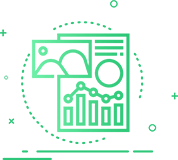
What we do
We Provided Best
PPC Services
01.
PPC Strategy
Maecenas elementum sapien in metus placerat finibus. Lorem ipsum dolor sit amet, vix an.
02.
Ad Copywriting
Maecenas elementum sapien in metus placerat finibus. Lorem ipsum dolor sit amet, vix an.
03.
PPC Optimization
Maecenas elementum sapien in metus placerat finibus. Lorem ipsum dolor sit amet, vix an.
04.
Penalty Recovery
Maecenas elementum sapien in metus placerat finibus. Lorem ipsum dolor sit amet, vix an.
pricing Plans
The Best Solutions for Our Clients
Ad nec unum copiosae. Sea ex everti labores, ad option iuvaret qui. Id quo esse nusquam. Eam iriure diceret oporteat.
Basic Plan
Tritani periculis vix an. At eam nostrud eruditi, his quem purto nulla an.
Premium Plan
Tritani periculis vix an. At eam nostrud eruditi, his quem purto nulla an.
Standart Plan
Tritani periculis vix an. At eam nostrud eruditi, his quem purto nulla an.




Hot It Works
We are Exclusive
Solution Agency
Ea pro tibique comprehensam, sed ea verear numquam molestie. Nam te omittam comprehensam. Ne nam nonumy putent fuisset, reque fabulas usu ne.

Media Promotion
Maecenas elementum sapien in metus placerat finibus.

Infographics Content
Maecenas elementum sapien in metus placerat finibus.










